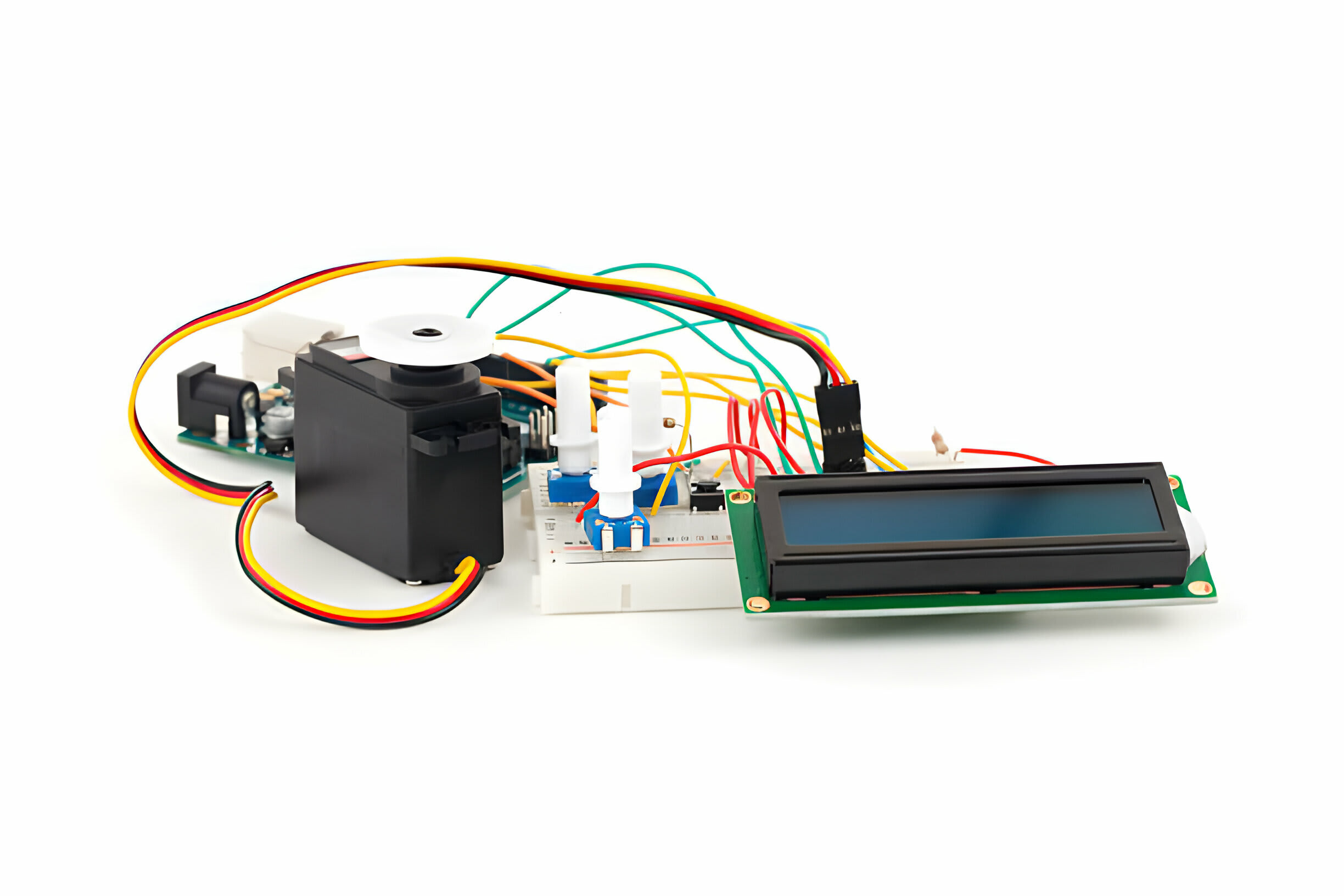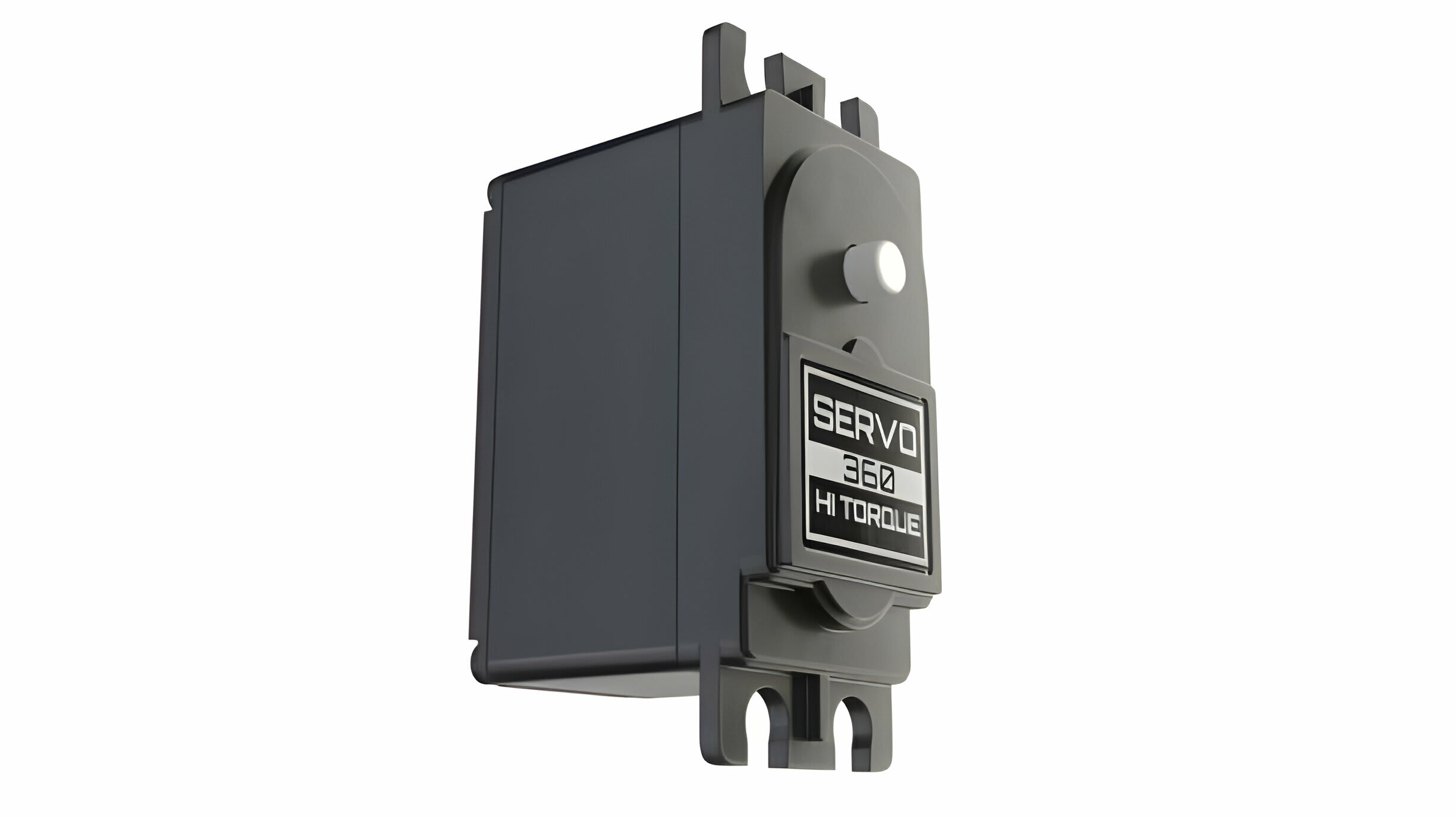- Published 19 Apr 2024
- Last Modified 19 Apr 2024
- 5 min
The Evolution of Servo Motors in Robotic Applications
Explore the transformative journey of servo motors in robotics, highlighting their impact on precision, control, and the future of technological innovation.

In innovation and automation, robotics has opened the way for groundbreaking advancements in the industrial and consumer sectors. From the assembly lines of automotive manufacturers to the intricacies of medical procedures, robots have become an integral part of the modern world. They extend their capabilities into our homes, making daily chores easier and more efficient. This seamless integration of robotics into various aspects of life is due to the continuous evolution of its components, especially servo motors.
Servo motors, often regarded as the heart of robotic systems, play a significant role in robotics development and enhancement. Their unique ability to provide precise control and movement has transformed how robots work, offering unmatched accuracy and flexibility.
As we look into the evolution of servo motors, it becomes clear how these compact yet powerful devices have revolutionised robotic applications, enabling more complex, reliable, and efficient operations. This blog will further explore what are servo motors and their journey from their inception to becoming a critical component in the robotics industry, driving innovation and opening new horizons in automation.

Early Uses of Servo Motors in Robotics
In the developing stages of robotics, adopting servo motors was a significant leap towards automation, although with technological limitations. Initially, these motors were rudimentary, offering simple motion control that barely scratched the surface of their potential. Despite these constraints, early servo motors were important in demonstrating the feasibility of precise movements in automated systems.
However, a landmark milestone in their evolution was the shift from analogue to digital control systems, which led to a new era of precision and efficiency. This transition allowed for more complex algorithms and control strategies, significantly expanding the capabilities of robotic applications.
Innovations such as high-resolution encoders and advanced feedback mechanisms further propelled servo motors from simple actuators to the backbone of robotic precision and versatility, laying the foundation for today's sophisticated systems.
Technological Advancements in Servo Motors
The technological landscape of servo motors has undergone remarkable transformations, significantly broadening their applicability in robotics. Miniaturisation involving miniature motors has been a key factor, with advancements enabling servo motors to become smaller, more efficient, and yet, paradoxically, more powerful. This evolution has made them essential for various robotic applications, from intricate surgical robots to small consumer gadgets.
Besides this, the integration of servo motors with digital control systems, including microcontrollers and digital signal processors (DSPs), marks another technological advancement. This integration has resulted in higher levels of precision, functionality, and versatility, allowing for complex movements and operations that were once deemed unachievable.
Furthermore, material and manufacturing innovations have played a crucial role. The adoption of superior materials and cutting-edge manufacturing techniques has significantly enhanced the durability and performance of servo motors. These advancements extend the lifespan of servo motors and optimise their efficiency and reliability in challenging environments, cementing their status as a foundational component in the ever-evolving field of robotics.
Impact on Robotic Applications
The technological progression of servo motors has significantly amplified the precision and control of robotic applications, marking a new era in the industrial and consumer sectors. Surgical robots, for instance, now perform complex procedures with minimal invasiveness, largely due to the refined accuracy of servo motors. Similarly, automated manufacturing arms can execute tasks with unprecedented precision, reducing errors and increasing productivity.
This leap in capabilities has not only optimised existing applications but also opened doors to new domains. Service robots, exploration drones, and personal robotic assistants are becoming increasingly common, enhancing daily life and pushing the boundaries of exploration and service.
The future of robotics, supported by ongoing advancements in servo motor technology, promises even more sophisticated interactions between humans and robots. The potential for fully autonomous systems and more intricate human-robot collaboration suggests a horizon brimming with possibilities, from advanced personal assistants to robots capable of navigating and adapting to complex environments autonomously. The journey of servo motors, from their humble beginnings to the powerhouse of robotic innovation they represent today, underscores their pivotal role in shaping the future of robotics.
Challenges and Solutions
Despite the remarkable advancements in servo motor technology, the robotics industry continues to face technical challenges. Heat management, energy efficiency, and torque limitations are significant hurdles that impact the performance and durability of robotic systems. However, innovative solutions are on the rise to tackle these issues head-on.
Advanced cooling systems have been developed to dissipate heat more effectively, preserving the motor's integrity and extending its lifespan. Energy recovery mechanisms are being integrated to enhance efficiency, allowing robots to operate longer on less power.
Moreover, adopting new materials and manufacturing techniques pushes the boundaries of torque capabilities, enabling servo motors to deliver higher power without compromising size or energy consumption. These solutions address current limitations and make the way for the next generation of robotics.
The Role of Servo Motors in the Future of Robotic
The future of robotics, with servo motors at its core, is set for transformative changes, marked by the integration of artificial intelligence (AI) and machine learning. These technologies can redefine servo motors, enabling adaptive control systems that can learn and optimise performance in real-time, enhancing efficiency and precision.
In the meantime, sustainability and environmental considerations are becoming paramount, driving efforts towards more energy-efficient designs and sustainable manufacturing practices for servo motors. For Australia, a country with a robust manufacturing sector, these advancements could significantly boost productivity and competitiveness.
By incorporating AI-enhanced servo motors, Australian industries could achieve higher precision, reduced waste, and lower energy consumption, aligning with global sustainability goals while maintaining economic growth. The evolution of servo motors thus represents a key factor in propelling Australian manufacturing and other robotic-reliant sectors into a greener and more technologically advanced future.
Empowering the Future of Robotics with Servo Motors by RS

The journey of servo motors from fundamental mechanisms to the backbone of modern robotics highlights their role in the evolution and growing potential of robotic applications. Their advancement has enhanced precision and efficiency and opened doors to new possibilities, from intricate surgical procedures to sophisticated manufacturing processes.
However, the path ahead demands continued innovation in servo motor technology to overcome existing challenges and unlock further advancements in robotics. For enthusiasts, professionals, and innovators, looking to explore the latest in servo motor technology, RS Australia offers an extensive selection of servo motors and other precision instruments to fuel the next wave of robotics innovation.
Explore our selection today and discover how the next generation of servo motors can transform your projects and applications.
Popular Brands for Servo Motors
Schneider - Electric
Schneider Electric offers highly efficient and durable servo motors, designed to meet the demanding needs of modern automation and control systems.